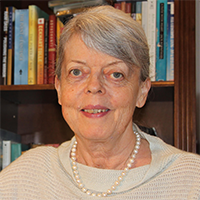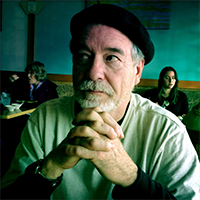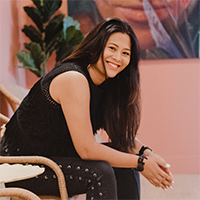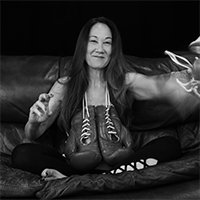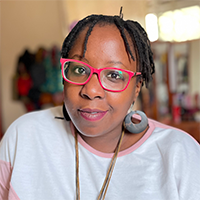North Street Book Prize 2020
Honoring the best self-published books of poetry, children's picture books, graphic novel & memoir, genre fiction, literary fiction, and creative nonfiction & memoir
Honorable Mention $250
- Emma Sondergaard, Goodbye, My Dear Grandma: An Activity Book for Grieving Children, Childrens Picture Book
- Zarle Williams, If I Could Be a Zebra, Childrens Picture Book
- Omaha Perez, Bodhisattva, Graphic Novel and Memoir
- Toni Thomas, In the Pink Arms of the City, Poetry
- Ying Qian, A China Story, Creative Nonfiction
- Dennis Reed, Migration Memories, Creative Nonfiction
- Marian Pierce, Finding Land, Literary Fiction
- Rashid Darden, Children of Fury, Genre Fiction
Thanks to everyone who entered our sixth annual North Street Book Prize for self-published books of poetry, genre fiction, mainstream/literary fiction, creative nonfiction & memoir, children's picture books, and graphic novel & memoir. We hit a new record with 1,915 entries this year!
Our first-round screeners, literary scholar Annie Mydla and poet and game designer Jim DuBois, once again did a stellar job of finding their top 60 picks for final judges Ellen LaFleche and Jendi Reiter. This was our most diverse entry pool, thanks to Annie's social media outreach.
All of the shortlisted books had something to recommend them—timely topics, a creative premise, diverse representation, an exciting plot, or a vivid writing style. Books that didn't make the final cut tended to have problems such as excessive proofreading errors, two-dimensional characters, or flaws in the structure and pacing.
Picture books were often strong in one aspect—illustration, theme, or writing—but unprofessional in another aspect. For instance, a children's book doesn't have to be written in rhyme and meter; if you can't make your verses scan smoothly, just write prose. Take care that your vocabulary is on a child's level, and that the book's concerns are relevant to the age group. "Issues" books still need to have kid appeal. The standard length for a traditionally published picture book is 32 pages. Going much beyond this page count risks losing a child's attention, if the book is also heavy on text as compared to illustrations.
Picture books' typefaces were frequently too small and bland. Times New Roman looks out of place in this context. Explore larger, more playful, yet still legible fonts (no cursive). White print on a colored background, although it seems to be trendy these days, can be very hard to see. This has been a recurring problem in graphic novels and children's book entries the past few years. Graphic novelists should avoid unduly shrinking the print size just to fit words into a box.
Grandparents love to read books to their grandkids, so keep these visual accessibility issues in mind. Children's books should contain no typos or spelling errors. This is a very important judging criterion for us because child readers are learning to read and spell and should not be confused by mistakes.
Many children's books and graphic novels have had very strong chemical smells. Please work with your printer to eliminate or minimize this problem. A strong smell may hurt your sales; bookstores, libraries and individual customers may be unwilling to purchase your book for this reason.
Comics' traditional visual vocabulary is unfortunately intertwined with old pseudoscience about physical traits revealing character defects. Watch out for fat-shaming, unnecessary sexualization of women, and anti-Semitic tropes like a hook nose to denote a "sinister" face. On the flip side, some entries didn't visually differentiate their characters enough, making the plot hard to follow.
Novels and memoirs were frequently too long and bogged down in trivial details. "Show, don't tell" can be taken to excess! This maxim really means that emotion and character should be demonstrated through action; it doesn't mean that scene is inherently better than summary.
In poetry, we most appreciated books with tonal range and formal variety, like a well-thought-out music album. It is a delicate balance to make a collection feel unified but not monotonous.
This year, the Memoir category was especially strong. We also noticed that, on average, the shortlisted books by women were more publication-ready than those by men; the latter contained more typos, book design flaws, and unnecessary scenes. (We are not aware of any nonbinary authors in the mix.) It's good to be confident about your work, but don't rush it into print before getting a close reading from a reliable freelance editor.
Please take time to confirm the spelling and accent placement of foreign words because we will definitely check. We've seen these errors too many times in a number of entries this cycle. Look up every foreign phrase even if you are confident of your skills. An easy way to double-check when you are writing dialogue is to temporarily switch your keyboard to the language you are quoting.
We fact-check scientific, technical, and medical information that appears in an entry, and have noticed some glaring errors this year. Don't show us a dead body bleeding profusely because an information search will reveal that bleeding stops when the heart is no longer beating. Research, research, and research.
Our Winners
Grand Prize winner Christine Mulvey's lyrical and devastating memoir Mine to Carry recounts her unplanned pregnancy as an unmarried Irish Catholic girl in 1981 and the forces that coerced her into surrendering her newborn son for adoption. Her personal battle for reproductive autonomy coincides with the emerging feminist movement, where she channels her nurturing qualities into activism for peace and justice.
Children's Picture Book winner Fetch by Jerald Pope is an elegiac yet hopeful visual poem in which an old man and his shaggy dog chase a ball for the last time. The wordless narrative, conveyed in white line drawings on a black background, holds space for readers to fill it with their own memories and beliefs about lost loved ones. Honorable Mention winner If I Could Be a Zebra by Zarle Williams teaches children the alphabet through whimsical poetry and illustrations of animals engaged in human pastimes. We awarded an extra Honorable Mention in this category to Emma Sondergaard for Goodbye, My Dear Grandma: An Activity Book for Grieving Children, which she wrote at age nine and illustrated with her own well-composed and colorful paintings.
Graphic Novel & Memoir winner Ingrid Pierre's Do Not Resuscitate is a horror story that is also a love story. Having been in denial about her architect boyfriend's imminent death from cancer, a young woman inadvertently conjures up a zombie version of him, but the endurance of their love is undercut by his body's continued disintegration. Honorable Mention went to Bodhisattva by Omaha Perez, a psychedelic tale in the "underground comix" style, about residents of a San Francisco mental hospital who are pawns in a battle of the gods.
Poetry winner Caleb "The Negro Artist" Rainey's Look, Black Boy combines the verve of spoken-word poetry with profound writing about the joys and perils of Black childhood in America. He writes with the urgency of someone who has fought for his life in a country that doesn't value it enough. Honorable Mention winner In the Pink Arms of the City by Toni Thomas employs unusual and memorable phrasing to show what it's like to be a homeless single mother in Edinburgh.
Creative Nonfiction & Memoir winner Alicia Doyle tells how she went from journalist to amateur boxing champ in her memoir Fighting Chance. The physically punishing sport brought out inner strengths that helped her process a family history of domestic violence. Honorable Mention Ying Qian's highly relevant A China Story: Growing Up in Mao's Cultural Revolution depicts childhood in a totalitarian regime, and reflects on the cultural factors that make people susceptible to dictatorship and paranoia. We awarded an extra Honorable Mention to Dennis Reed's Migration Memories: Brooklyn Blues, an entertaining and informative memoir of a pivotal year in his teens when he was one of the few Black students at a prestigious NYC prep school.
Mainstream/Literary Fiction winner Jolie P. Hoang's Anchorless is a lyrical, moving story about her Vietnamese refugee family, told in the voice of her father's ghost, who describes how he drowned while escaping their war-torn country. Straddling the line between fiction and memoir, this book employed an unusual literary device that paid off. We learned so much from this book about how ancestors were honored in her culture. Honorable Mention went to Marian Pierce for Finding Land: Stories of Japan, a linked collection of short fiction centering on an expatriate American wife's adjustment to her new country and her emotionally distant husband.
Genre Fiction winner Kunda is an ambitious, spiritually uplifting tale of time travel and family destiny in a fictitious African island nation, by Ugandan author Atukunda Rachael Mutabingwa. Honorable Mention winner Rashid Darden's Children of Fury: Dark Nation III puts a fresh spin on "chosen one" fantasy novels, starring a gay Black youth and his classmates at a Washington, DC remedial school who are selected by immortal mentors to fight an evil cult.
See our press release about the winners. Read about our current contest.
We would like to recognize and encourage these finalists:
Children's Picture Book
Kelly Louise Brunetta, Oliver West! It's Time to Get Dressed!
Judy Connally, My Choctaw Roots
Jerald Pope, Owl Girl
Graphic Novel & Memoir
Ricky Lima, Happily Ever Aftr
Poetry
Ioanna Carlsen, The Whisperer
Monica Leak, No More Hashtags: Who You Calling?
Toni Thomas, The Hotsy Totsy Ballroom
Creative Nonfiction & Memoir
Bethany Beeler, How to NOT Know You're Trans
Mainstream/Literary Fiction
Adriane Brown, The Café on Dream Street
Marolyn Krasner, The Radicals
Jennifer Smith Turner, Child Bride
Genre Fiction
Silas Barrow, For Their Blood Burns Wild
Atukunda Rachael Mutabingwa, Adavera
We would further like to recognize these semi-finalists:
Justine Avery, Erik Bean, Mark Bello, Bernice Bennett, Tom Cicinski, Lisa Creech Bledsoe, Elaine Del Valle, Amy Deterding, Michelle Dwyer, Erik Eff, Osamase Ekhator, Kim English, Dianne Liuzzi Hagan, Tim Hall, Sandra Hutchison, Sarah Ippen, Morris Junior, Shaun Keenan, Celia King, Lorraine Lipani, William McClain, Kathleen McDonnell, Jemil Metti, Karen Patterson, Patricia Prijatel, Michael Roughton, Daphne Russell, Gwynne Sawtelle, Michael Susca, Bruce Taylor, James Weber, Erin Welch, Lisa Wharton, Adrian Windsor, and Susan Zenker.
Contest Judges

Annie Mydla
Annie Mydla is the managing editor of Winning Writers. Born in Boston in 1989, she moved to Poland at the age of twenty-seven, where she now lives full time. Annie has critiqued over 600 full-length books and manuscripts through her work with the Winning Writers critique service and the North Street Book Prize, and read over 8,000 self-published books as a North Street assistant judge. She and her team deliver North Street judging feedback to approximately 1,500 authors per year. Annie oversees a staff of five in Poland, coordinates contest administration and customer service, and helps maintain the Winning Writers website. She is a literary scholar and writer. Check out her Winning Writers blog posts on writing craft and industry success. Outside of work, Annie is the founder and facilitator of Autistic Women's Group (est. 2021) and the editor of its journal for literary, visual, and audio art, AWG Shares Magazine.
Contest Judges

Jim DuBois
Jim DuBois assists with the judging of our Tom Howard/Margaret Reid Poetry Contest and previously with our North Street Book Prize. He studied writing and computers at Hampshire college. Now he spends his time inventing games, writing poetry and making art.
Contest Judges
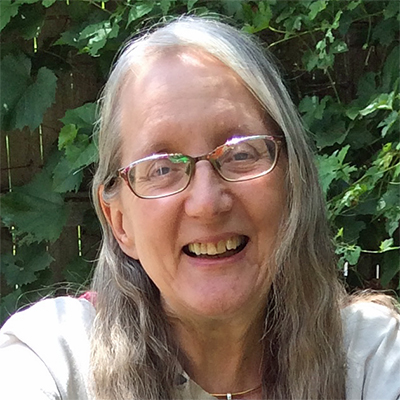
Ellen LaFleche
Ellen LaFleche is a past judge of our North Street Book Prize. She has worked as a journalist and women's health educator in Western Massachusetts. Her manuscript, Workers' Rites, won the Philbrick Poetry Award from the Providence Athenaeum and was published as a chapbook in 2011. Another chapbook, Ovarian, was published in 2011 by the Dallas Poets Community Press, and a third chapbook, Beatrice, about a semi-cloistered nun, was published in 2012 by Tiger's Eye Press. Her poems have been published in Spoon River Poetry Review, Hunger Mountain, New Millennium Writings, The Ledge, Alligator Juniper, Many Mountains Moving, Harpur Palate, Southeast Review, and Naugatuck River Review, among many others. Prose credits include her 2014 Daily Hampshire Gazette article "Taken too soon, at 65: My husband John Clobridge's final days with ALS". She also reviews books for Wordgathering, the online journal of disability poetics. She has won the Ruth Stone Poetry Prize, the New Millennium Poetry Prize (shared with Jim Glenn Thatcher), the DASH Poetry Journal Prize, the Poets on Parnassus Prize for poetry about the medical experience, second prize in The Ledge Poetry Awards, and the Editor's Choice Award for Poetry from Writecorner Press.
Contest Judges

Jendi Reiter
Jendi Reiter is vice president of Winning Writers, editor of The Best Free Literary Contests, and oversees the Winning Writers literary contests. Jendi is the author of the novel Origin Story (Saddle Road Press, 2024), the short story collection An Incomplete List of My Wishes (Sunshot Press, 2018), the novel Two Natures (Saddle Road Press, 2016), the poetry collections Made Man (Little Red Tree Publishing, 2022), Bullies in Love (Little Red Tree Publishing, 2015), and A Talent for Sadness (Turning Point Books, 2003), and the award-winning poetry chapbooks Swallow (Amsterdam Press, 2009) and Barbie at 50 (Cervena Barva Press, 2010). Awards include a Massachusetts Cultural Council Artists' Grant for Poetry, the 2016 New Letters Prize for Fiction, the 2016 Rainbow Award for Best Gay Contemporary Fiction, the 2015 Wag's Revue Poetry Prize, the 2013 Little Red Tree International Poetry Prize, the 2012 Betsy Colquitt Award for Poetry from Descant magazine, the 2011 James Knudsen Editor's Prize in Fiction from Bayou Magazine, the 2011 OSA Enizagam Award for Fiction, the 2010 Anderbo Poetry Prize, and second prize in the 2010 Iowa Review Awards for Fiction. Jendi's work has appeared in Poetry, The New Criterion, Mudfish, Passages North, Cutthroat, Best American Poetry 1990, and many other publications. See their interviews in RoundPier and Lammergeier.
Photo by Ezra Autumn Wilde







